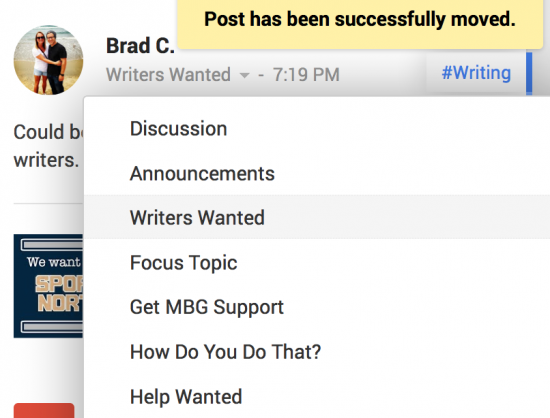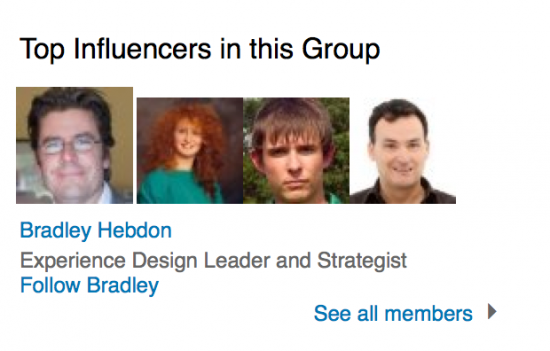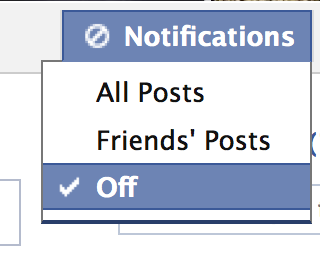Building a community is a primary reason behind the existence of social media in a business context. Marketing yourself becomes easier if you can engage users and create a sense of togetherness with those who you are reaching out to. Networks realize this, and most of them are providing tools that let you do it. Google+, Facebook and LinkedIn have the best examples of this.
You might be wondering which of the three is the best, however. Communities are only as good as the people in them, but that doesn’t mean the platform you choose to build from isn’t important. Each has their own strengths and weakness, so it becomes a matter of which will provide the most stable beginning and future benefits to you, and meet the needs of your community.
Facebook groups, LinkedIn groups and Google Plus communities allow to discover and connect to more people in your niche. They are a bit different in some ways but the gist is the same: They pretty much operate as discussion boards.
Here are some differences in an easy-to-digest way (as you will see below both allow for nice networking opportunities, so I’d use both):
[Feel free to download the table in HTML here]
| Facebook groups | LinkedIn groups | Google Plus communities | ||
|
Structure
|
Types | Open groups (Anyone can see content) | Open groups | Public: a) Public b) Moderator approval is required |
| Closed (Only members see the content) | Members-only groups (Members should be approved by the moderator; Discussions are hidden from search engines or non-members). | Private: a) Anyone can join but all should be approved by moderator (only members can see discussions) b) Hidden from search (works by invitation only) | ||
| Secret (Only members know it exists) | ||||
| Subgroups | No | Yes (can be members-only) | No | |
| Categories for discussions (make easier to follow what you specialize in) | No | Kind of (the built-in categories are: (general) discussions, jobs and promotions) | Yes | |
| “Follow” favorite / interesting discussions | Yes | Yes | No | |
|
Easiness of content discovery and interaction
|
Order of new threads by default | Unclear (Mix of date & popularity) | Most popular (“What’s happening”) | Latest |
| Emails sent when a new thread is added | Yes (Disabled by default but you can enable that) | Yes (Disabled by default but you can enable that) | Yes (Disabled by default but you can enable that) | |
| Seeing new threads in your stream / home page | Yes | No | Yes (Disabled by default but you can enable that) | |
| Hashtag support | Yes | No | Yes | |
|
How to discover and build new connections
|
The ability to see ALL members of the group / community | Yes | Yes (+ see how “far” they are from you, i.e. 1st/2nd, etc degree) | Yes (You can see if you are already connected on hover-over) |
| Highlighting influencers / active users within group / community (makes it easier to discover new connections) | No | Yes | No | |
| The ability to follow / add new contacts right from the member list | Yes | Yes | Yes (on hover-over) | |
| The ability to tag people in the update to drive them into the discussion | Yes | No | Yes | |
| How to share your own stories | The ability to self-promote (promote projects, press releases, etc) | No | Yes (via Promotions that can be enabled by group moderators) | No built-in / explicit feature for that (but mods can allow that by creating a separate category) |
| The ability to set-up a poll | Yes | Yes | No | |
| The ability to submit a new story from off-site buttons | No | Yes | Yes | |
| Events | Yes | No | Yes! Google Plus Hangouts! | |
Let’s briefly look into each one, individually.

Best feature of Google Plus communities: CATEGORIES
Google+ Community
Google+ is a hard platform to judge. On one hand, you have a network with 500 million users, over 340 million of which are said to be active.
On the other, a lot of that activity seems to be coming from using G+ to log into other services, or general Google account use.
After the recent update, Google Plus is a pleasure to use. In my niche I find very meaningful comments on Google Plus and for some reason people seem to more eagerly interact with you there.
LinkedIn Group

Best feature of Linkedin groups: Identify active influencers
Anyone who is hoping to create a professional-aimed, industry specific community would do well on LinkedIn Groups. It isn’t a place for casual discussion so much as business heavy topics and networking among others for mutual success and future collaborations. Experts are on LinkedIn, and they are reaching out to other experts.
But there is a serious problem on these groups, and that is moderation. Every bit of content published there has to be approved by a moderators, which seems fair enough at the face of it. After all, you only was quality posts there, right?
Except, when reading of people who are complaining about this process, you begin to realize that the moderators are not properly doing their job. Off topic or badly written content is regularly put through, while on topic, top quality work is rejected. It doesn’t seem to be based on anything but the whim of the person reviewing it, such as in this example from Shell Robshaw-Bryan of Social Media Today.
This has been happening to many people recently. So while it is worth trying out LinkedIn Groups, you will want to be wary of the problem.

Best feature of Facebook groups: Listen only to your friends
Facebook Group
In some niches, Facebook is always going to have the most draw, because it has the largest network of people. Since its inception, the site has taken over the online social scene.
Facebook groups are best for letting people get to know each other *personally*.
Conclusion
As each platform offers a different set of benefits to the user, there is no right or wrong answer when looking at whether Google+, LinkedIn or Facebook are best for community building. Which one have you had success with in the past? Let us know in the comments.
Image Credits: let’s connect

The three platforms all raise different objectives. What is the goal? What is the niche? I’ve noticed that G+ is great for writers to share bodies of works, however, I find new writers to connect with on LinkedIn Groups. Facebook is my last choice though, because it is more personal and less professional.
Yes, it all depends on your objectives for sure… but you never know until you try, that’s my motto. The article was not supposed to encourage you to choose ONE. It was rather meant to emphasize most valuable feature of each and encourage the users to make the most of each!
Facebook have prv, closed groups as well